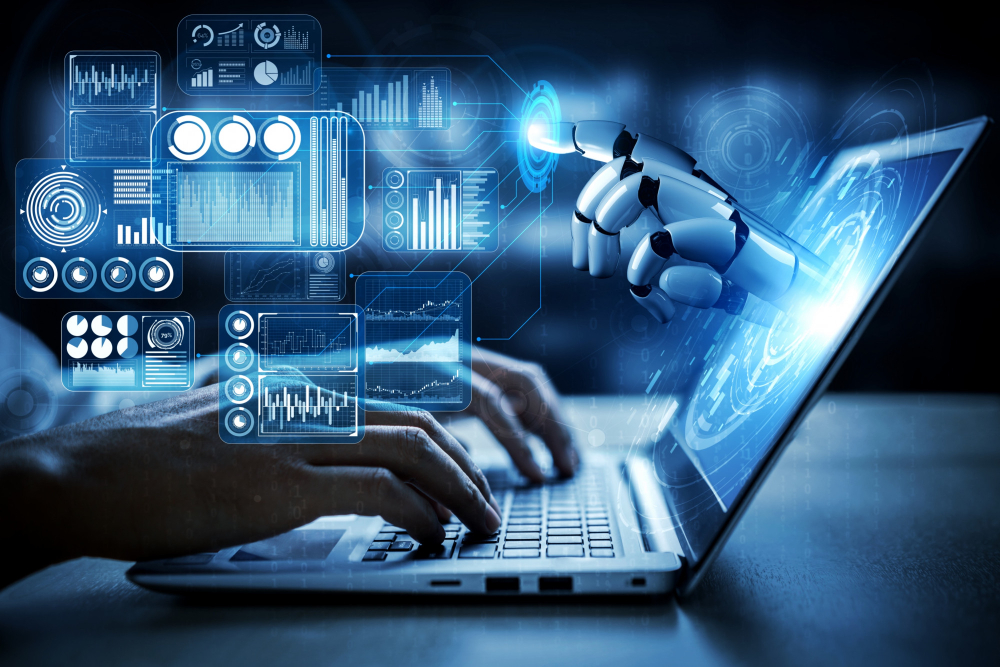Skills of Tomorrow: Adapting to the Age of Automation
The landscape of work is undergoing a seismic shift, propelled by the relentless march of technology. As automation and artificial intelligence become integral parts of various industries, the skills that once guaranteed job security are evolving. In this era of transformative change, understanding the skills of tomorrow and proactively adapting is not just advisable – it’s imperative for career resilience.
The Automation Revolution
Automation and artificial intelligence are reshaping the job market, automating routine tasks and freeing up human potential for more complex and creative endeavors. While this evolution promises increased efficiency and innovation, it also brings about a fundamental shift in the skills demanded by employers.
Routine manual and cognitive tasks are increasingly being automated, making way for the ascendancy of skills that machines find challenging to replicate – skills that are distinctly human.
Crucial Skills for the Future
Digital Literacy:
- As technology becomes omnipresent, a foundational understanding of digital tools and platforms is essential. This includes not only the ability to use existing technology but also the agility to adapt to new tools as they emerge.
Critical Thinking and Problem-Solving:
- Machines excel at routine problem-solving, but complex, non-routine challenges require human ingenuity. The ability to analyse situations, think critically, and devise creative solutions will be a cornerstone of future employability.
Adaptability and Flexibility:
- The pace of technological change means that job roles and industries will continuously evolve. Individuals who can adapt swiftly, embrace change, and learn new skills on the fly will be highly sought after.
Emotional Intelligence:
- While machines can process data, they lack emotional intelligence. Human-centric skills such as empathy, communication, and collaboration will be crucial for roles that involve human interaction and teamwork.
Continuous Learning:
- In the age of automation, learning is a lifelong endeavour. The ability and willingness to upskill and reskill will be paramount. This requires a growth mindset that sees challenges as opportunities for learning and development.
Complex Problem Solving:
- The ability to navigate and solve complex, multifaceted problems is a skill that machines currently struggle with. Individuals who can break down intricate issues and develop comprehensive solutions will be highly valued.
Creativity:
- Creativity is a uniquely human trait that is difficult for machines to replicate. Industries increasingly seek creative thinkers who can innovate, envision new possibilities, and bring fresh perspectives to the table.
Data Literacy:
- In a data-driven world, the ability to interpret and derive insights from data is a valuable skill. Data literacy involves not only understanding data but also making informed decisions based on data analysis.

Future-Proofing Your Career
Adapting to the age of automation requires a proactive approach to skill development. Here are some strategies to future-proof your career:
Assess and Identify Gaps:
- Regularly assess your skills and identify areas where you can improve. This self-awareness is crucial for targeted skill development.
Invest in Lifelong Learning:
- Enroll in courses, attend workshops, and embrace online learning platforms to continuously update your skills. Seek out opportunities for professional development.
Build a Diverse Skill Set:
- Cultivate a diverse skill set that combines technical, soft, and transferable skills. This versatility makes you adaptable to a range of roles and industries.
Network and Collaborate:
- Engage with professionals in your field, attend industry events, and participate in online communities. Networking can provide insights into emerging trends and potential opportunities.
Embrace Change:
- Develop a mindset that sees change as an inherent part of the professional journey. Embrace new technologies and methodologies with curiosity rather than resistance.
In conclusion, the skills of tomorrow are a blend of technical expertise and uniquely human qualities. As automation becomes more pervasive, individuals who invest in continuous learning, cultivate adaptability, and hone human-centric skills will not only survive but thrive in the age of automation. The key is not to resist change but to actively shape and adapt to it, ensuring a resilient and future-proofed career.



